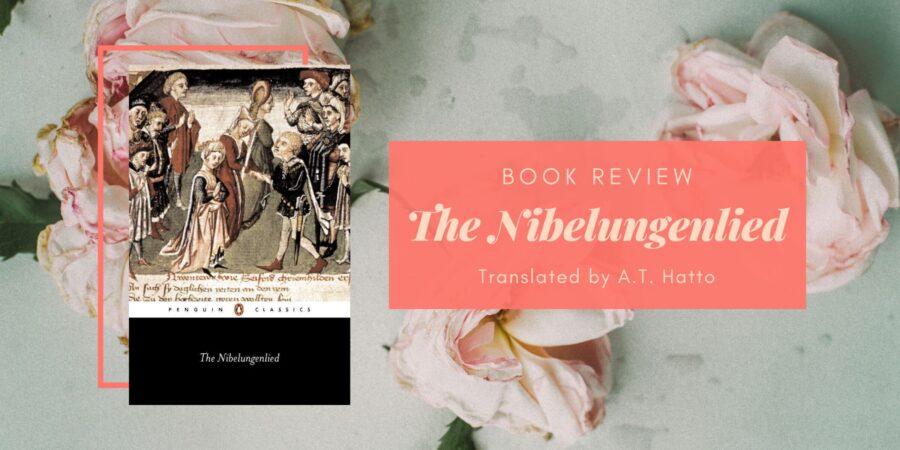I first heard about the German epic, the Nibelungenlied, from an episode of the BBC In Our Time podcast. The discussion really intrigued me so I sought out a translation of the epic – this time, I found the Hatto translation (though to be honest, I didn’t really do a deep dive into the translations and how they stack up against each other).
The Nibenlungenlied is a tale with two main parts: part one concerns how Siegfried helped Gunther win Brunhild, and so won Kriemhild for himself. Part two follows Kriemhild after Siegfried’s murder as she seeks to avenge him.
I think the biggest thing to get used to reading is the style – the Nibenlungenlied was originally a poem and yet here it’s been translated into prose. Additionally, the writer employs a very obvious “foreshadowing” pattern into the text. But since I was already somewhat familiar with the style of the poem, I found it easy to get used to.
I actually found myself gripped by the story! The introduction warned that it was a slow set up, but once things started moving I was hooked. I understand that Kriemhild moves to being an “evil” character to the end and her primary antagonist, Hagen, ends up depicted in heroic terms, but I just couldn’t feel that way about them. For me, Kriemhild was betrayed on a large scale by those who professed to love her and Hagen was too proud to make restitution for the wrongs committed, instead doubling down by taking away Kriemhild’s treasure. Is it any wonder, in that case, that Kriemhild bears him such enmity? I think Hatto puts it well in the afterword when he says that “our poet’s pride of sex makes him as mean towards Kriemhild here as Homer’s pride of race made him momentarily ungenerous towards Hector”, and that “a woman whose will was as strong as a man’s risked being branded as a monster.”
For those of you interested in the history behind the text, the Hatto translation that I read came with an introduction, another essay after the text titled “An Introduction to a Second Reading” to prepare one for a “second reading”, and several appendixes covering the status of the poet, the manuscript tradition, date of poem, etc. It was great being able to read the Nibenlungenlied and then delve into the text and its history.
I’m not sure how many people are interested in medieval epics but if you are, the Nibenlungenlied is fun and definitely worth reading.
Featured Image: Photo from Canva

If you found this interesting, I would highly recommend checking out the Norse version(s) of the story. The Volsung/Walsing version has more supernatural elements and is more sympathetic to Kriemhild/Gudrun. There’s an old bare-bones prose version that you can find in multiple translations. In my opinion the poetic excerpts from the story found in the Poetic Edda (especially as translated by Lee Hollander) are much more powerful, but they do require some familiarity with the story to fully make sense. Also, J. R. R. Tolkien wrote an excellent alliterative verse version called “The Legend of Sigurd and Gudrun” that is one of my favorite books.
Thank you for all the recommendations! I may start with the Tolkien version; sounds most accessible to me (:
I’ve been wanting to read the Nibenlungenlied for some time now. I think I first heard of it in a memoir or something by Ursula Le Guin. I think she attended an opera or something based on it. Then I found a comic-book adaptation of the Nibenlungenlied (or of stories in it). I’ll add this one you read to my TBR. I think it might be more helpful to read it in that form first before doing the comic book.
I’d highly recommend the BBC podcast if you have some time! There are spoilers for the poem, but it does help to explain the style (which gave me more patience while I read it too).
Ooooh I’m definitely putting this one on the tbr!
Hope you like it too, I found it pretty fun!